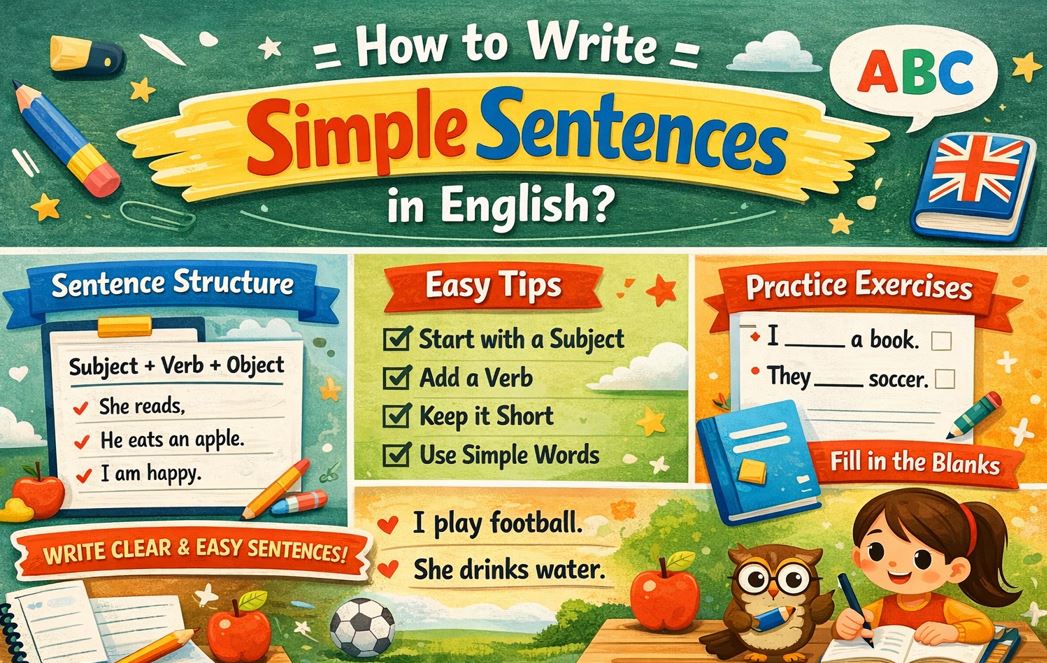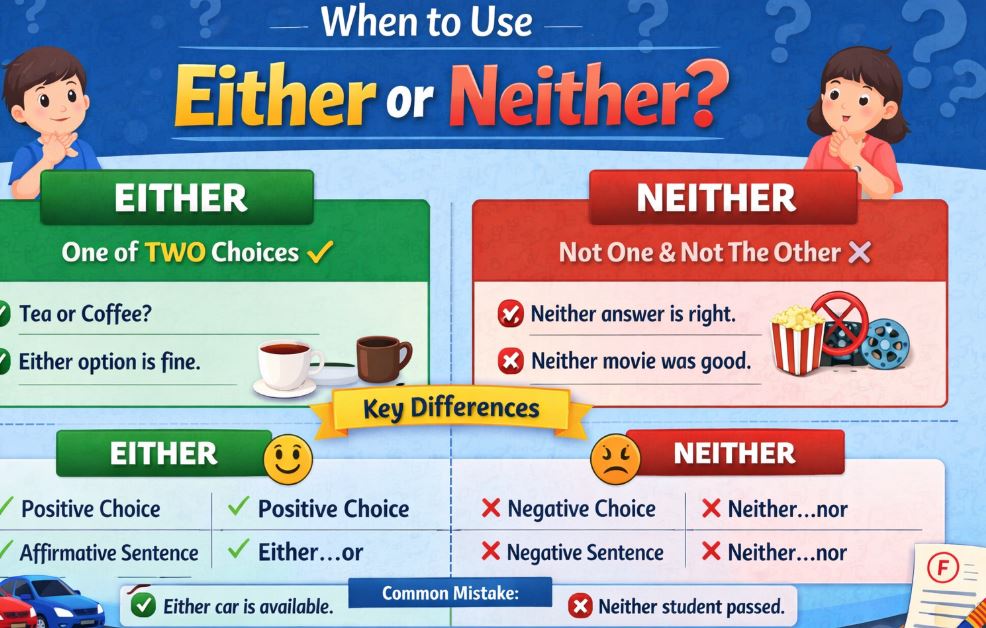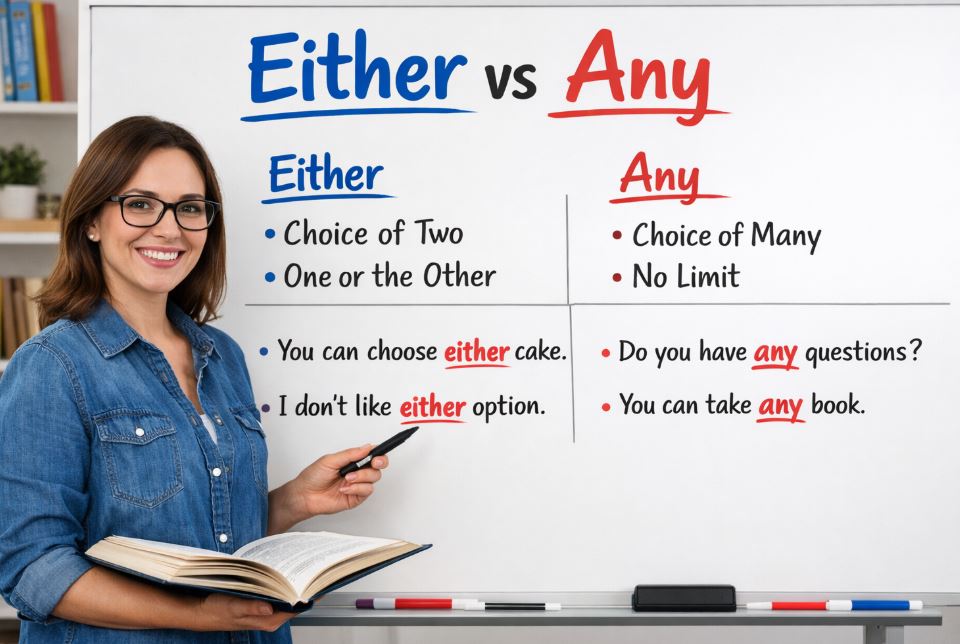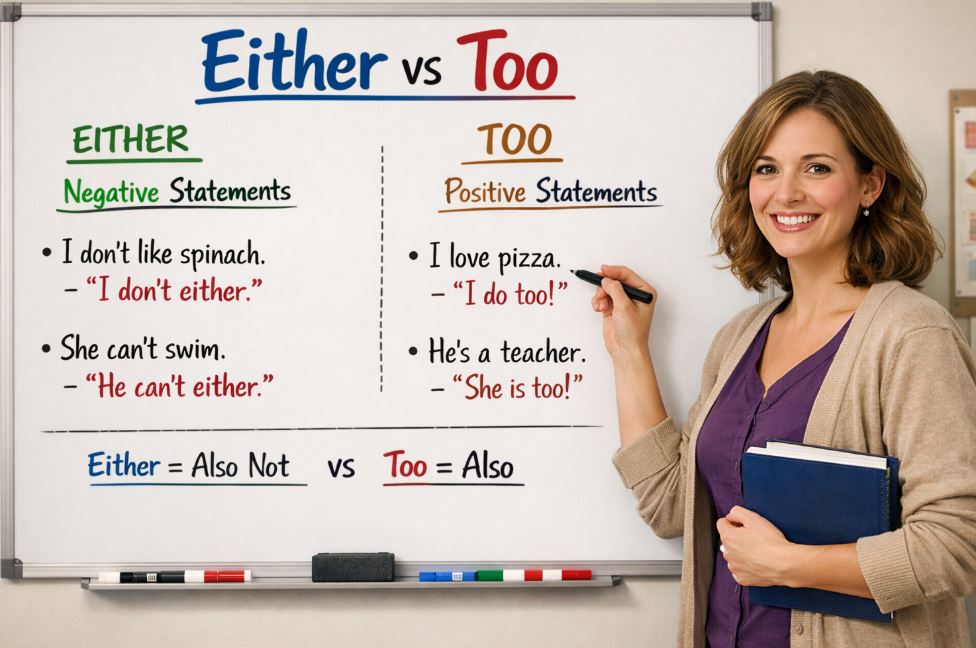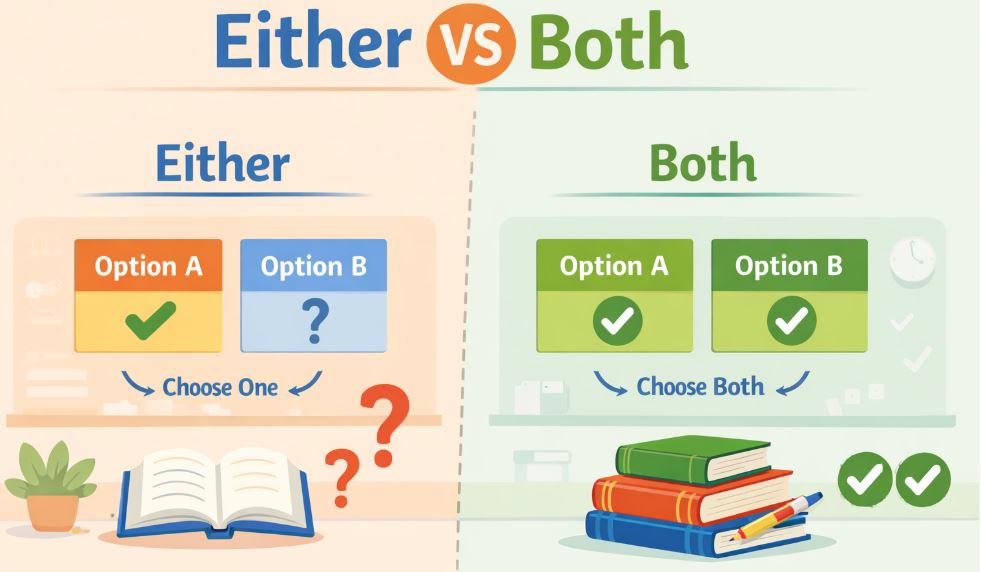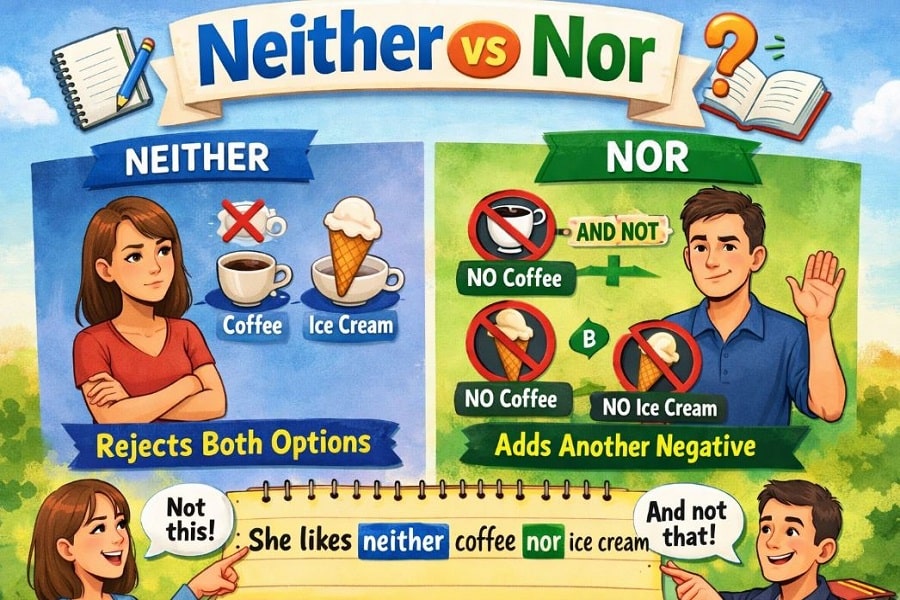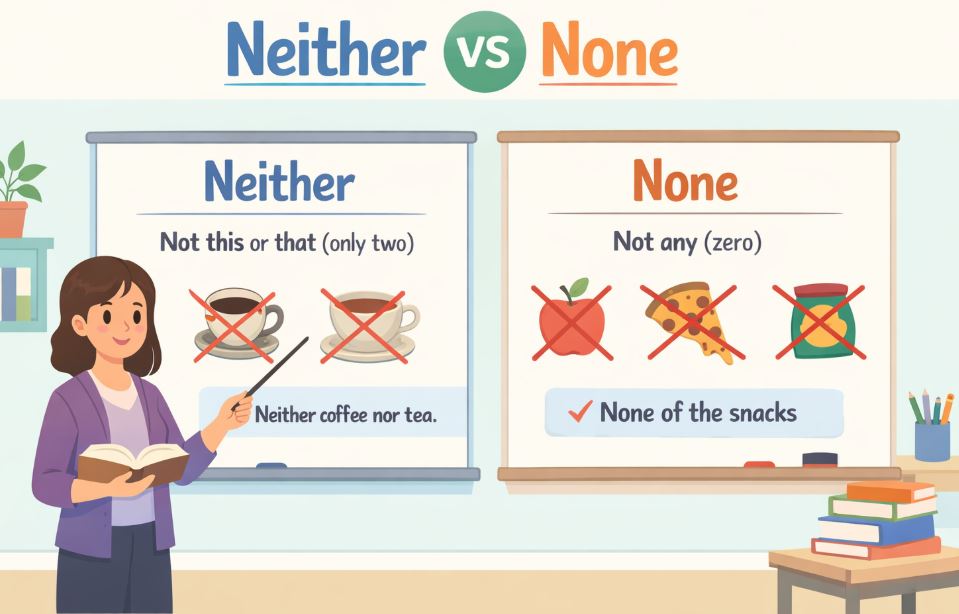Each vs Both | Meaning, Differences, Examples, Exercises & Quiz
Understanding Each vs Both is important for writing and speaking correct English. Many learners confuse these two words because they both talk about people or things in a group. However, their meanings and grammar rules are different. In this complete guide, you will learn: What “each” means What “both” means What is the difference between … Read more


